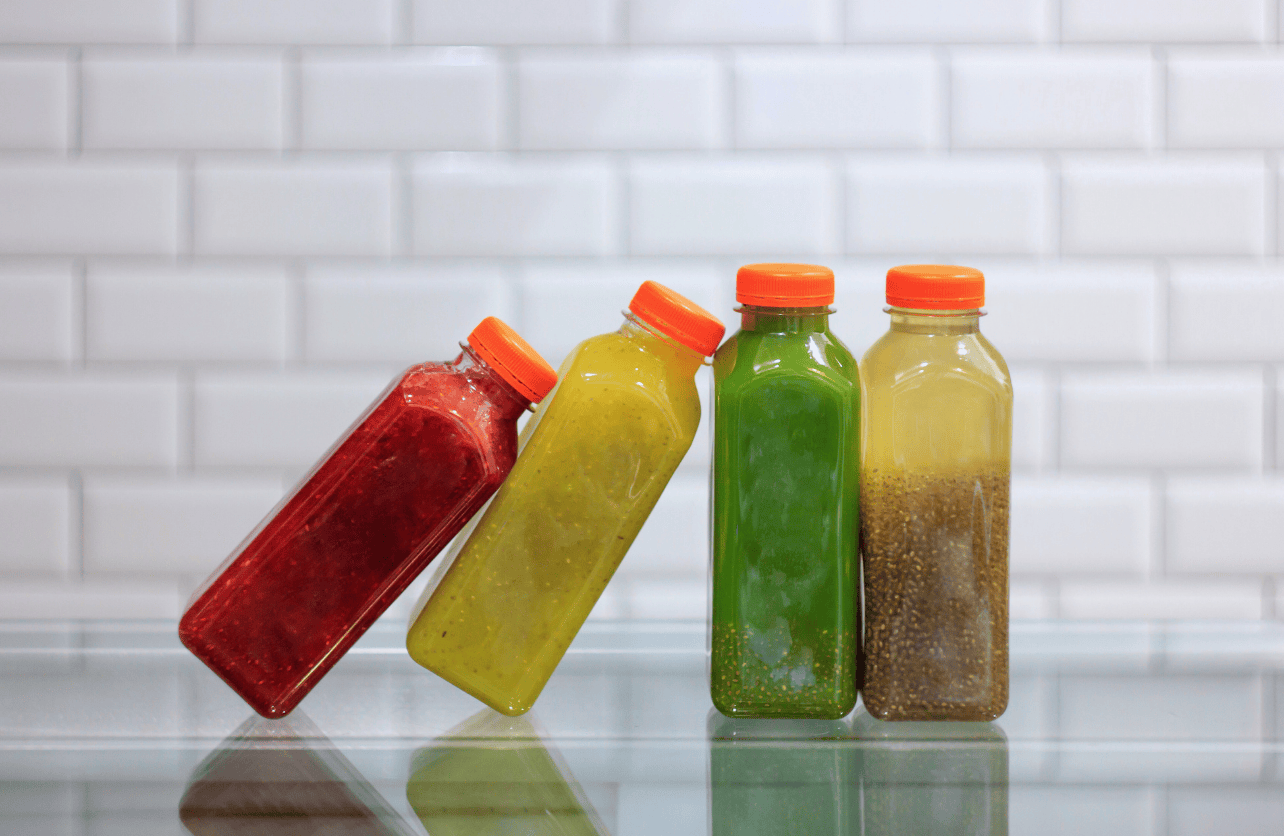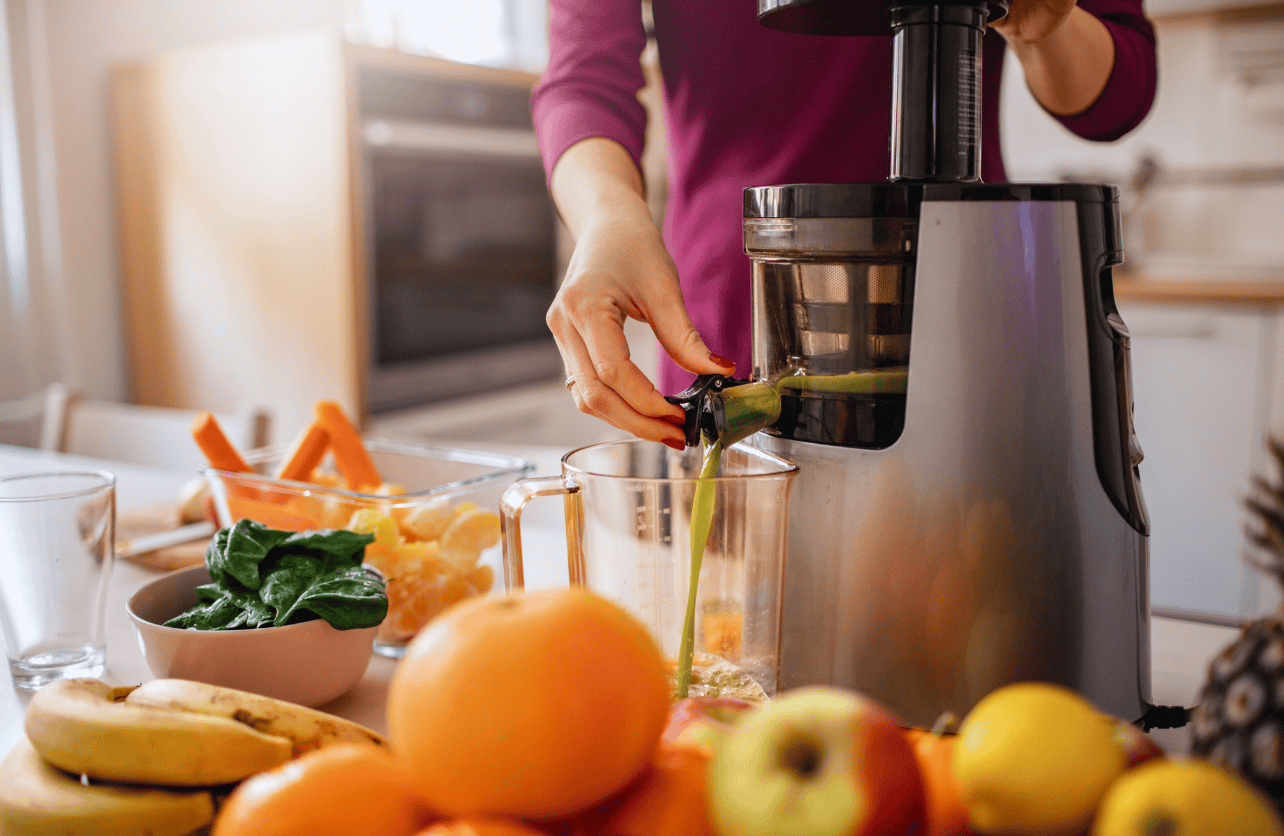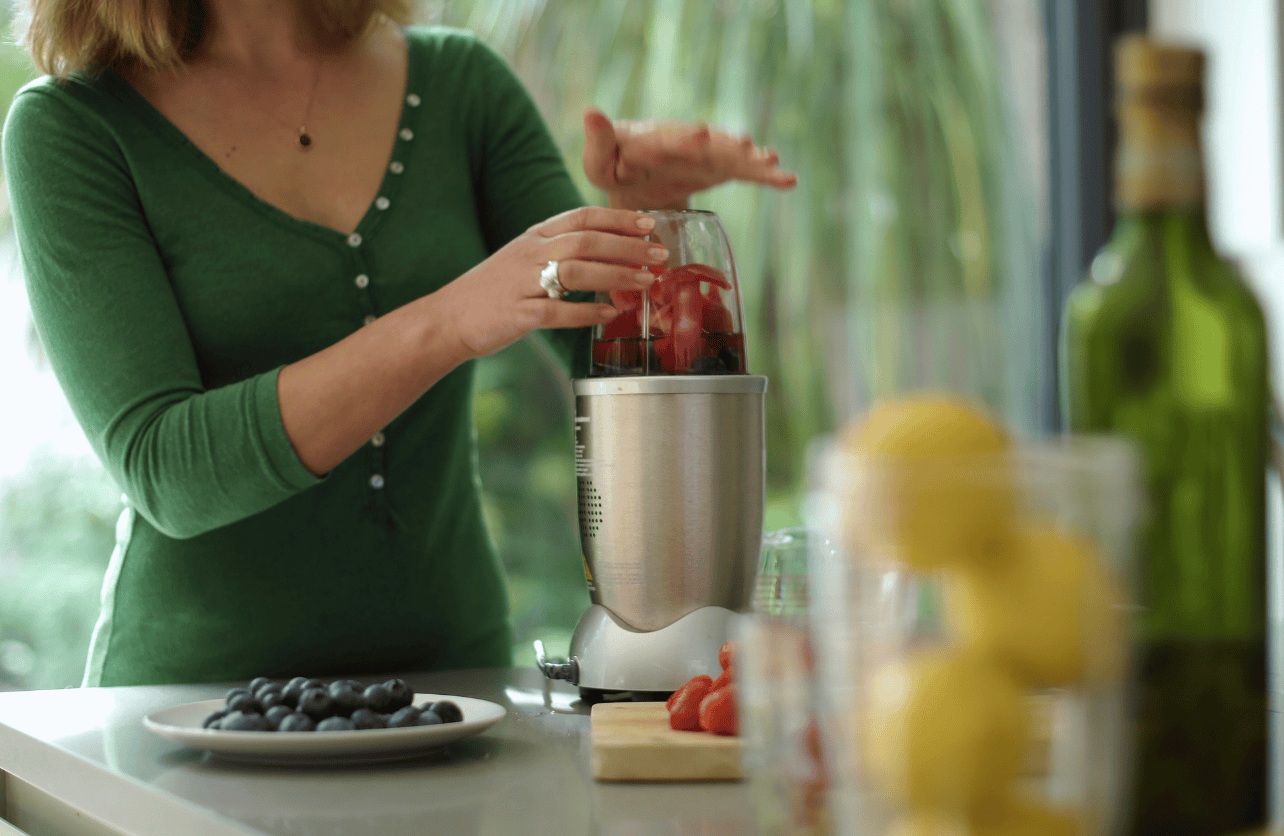Cold-Pressed vs. Regular Juicing: What’s the Difference?

Juicing has become a staple for health-conscious individuals looking to boost their nutrient intake in a convenient way. However, not all juicing methods are the same. Cold-pressed juicing and regular (centrifugal) juicing extract juice differently, leading to variations in nutrient retention, shelf life, and overall quality. If you’re wondering which method is better for your health and lifestyle, this guide breaks it all down.
What Is Cold-Pressed Juicing?

Cold-pressed juicing, also known as masticating juicing, is a slow process that extracts juice by crushing and pressing fruits and vegetables. This technique minimizes heat exposure and oxidation, which helps preserve the vitamins, enzymes, and antioxidants in your juice.
Benefits of Cold-Pressed Juicing
- Higher nutrient retention – The slow extraction process prevents heat buildup, keeping more nutrients intact.
- Longer shelf life – Because there is less oxidation, cold-pressed juices can last up to 3–5 days in the fridge.
- Better juice yield – This method extracts more juice from produce, reducing waste.
- Richer taste – Cold-pressed juice tends to have a smoother, more intense flavor.
Drawbacks of Cold-Pressed Juicing
- Takes more time – The juicing process is slower compared to regular juicing.
- More expensive – Cold-press juicers tend to be pricier than centrifugal models.
- More cleanup required – The machines often have more parts, making them harder to clean.
What Is Regular (Centrifugal) Juicing?

Centrifugal juicing uses a high-speed spinning blade to shred produce and separate the juice from the pulp. This is the most common type of juicer, found in many kitchens due to its affordability and convenience.
Benefits of Centrifugal Juicing
- Fast and convenient – Produces juice in minutes, making it great for busy lifestyles.
- More affordable – Centrifugal juicers are usually less expensive than cold-press models.
- Easier to use – A great option for beginners who want a simple, quick juicing method.
Drawbacks of Centrifugal Juicing
- More oxidation – The high-speed process introduces more air, leading to faster nutrient loss.
- Shorter shelf life – Juice must be consumed within 24 hours before it starts losing nutrients.
- Lower juice yield – It extracts less juice, especially from leafy greens like kale and spinach.
- More foam and separation – The juice often contains more foam and separates quickly.
Nutrient Comparison: Does Cold-Pressed Juice Have More Vitamins?
A major selling point of cold-pressed juice is its higher nutrient retention, but is the difference significant? Studies suggest that some nutrients, like vitamin C and antioxidants, may degrade faster in centrifugal juice due to heat and oxidation. However, for most people, the difference isn’t drastic enough to make regular juicing unhealthy.
If your goal is to consume fresh juice immediately, a centrifugal juicer can still provide plenty of nutrients. But if you like to store juice for later, cold-pressed is the better option.
Shelf Life: Which Juice Lasts Longer?
- Cold-pressed juice lasts up to 3–5 days if stored properly in an airtight container in the fridge.
- Centrifugal juice lasts about 24 hours due to the faster oxidation process.
- If you need juice that lasts longer, cold-pressed is the clear winner.
Which Juicer Is Right for You?
The best juicer for you depends on your priorities and lifestyle. Here’s how to decide:
Choose a Cold-Press Juicer If:
- You prioritize maximum nutrient retention.
- You batch-prep juice and need it to stay fresh for a few days.
- You want higher juice yield and less food waste.
- You don’t mind spending more time and money on your juicing routine.
Choose a Centrifugal Juicer If:
- You need a fast, budget-friendly option.
- You drink your juice immediately after making it.
- You don’t mind slightly lower nutrient retention.
- You want a simple and beginner-friendly juicing experience.
Final Thoughts: Which Juicing Method Is Best?
Both cold-pressed and regular juicing methods have their advantages. If you’re looking for maximum nutrients, longer shelf life, and a richer juice yield, cold-pressed juicing is the better choice. However, if you prioritize speed, affordability, and convenience, a centrifugal juicer still offers a great way to get fresh juice into your routine.
Building a Stronger You
Supplement Institute is the fruit of extensive online publishing experience, spanning the breadth of SEO strategies to the nuances of paid advertisements. Our journey, marked by significant achievements and learning moments, inspires our core mission: to empower our readers with an abundance of information. By sharing insights and key learnings, we aim to provide you with the knowledge needed to navigate the complex world of supplements, helping you make well-informed decisions for your health and well-being. Welcome to Supplement Institute, where information is your greatest supplement.